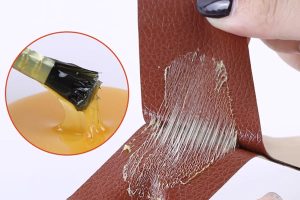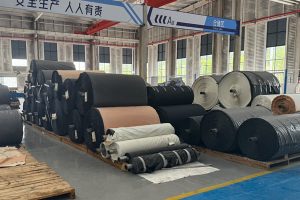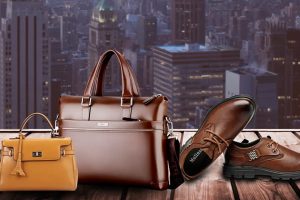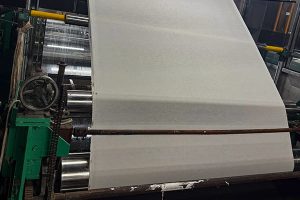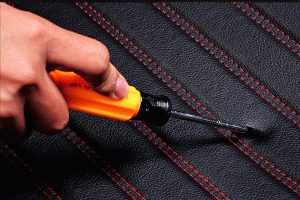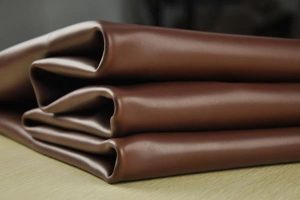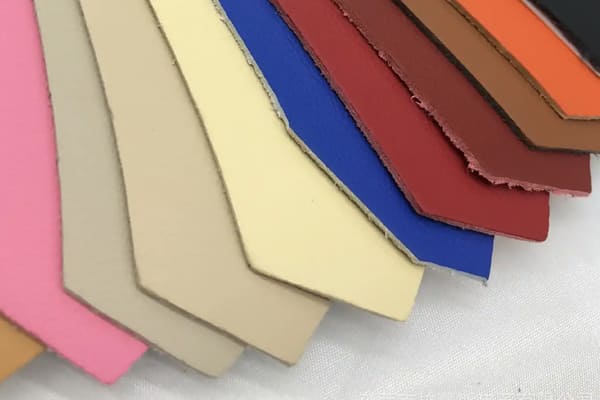
In the fast-evolving world of fashion and design, sustainability and premium quality are no longer at odds. Enter microfiber leather—a material that not only meets the demands of modern luxury but also paves the way for a greener future. Far more than a substitute for traditional leather, microfiber leather represents a transformative leap in materials science, offering an eco-conscious alternative without sacrificing elegance or performance. As a trailblazer in the industry, it embodies a new era where ethical responsibility and high-end aesthetics converge. Join us as we embark on a journey to uncover the science, sustainability, and endless possibilities behind microfiber leather.
The Science Behind Microfiber Leather: Crafting the Perfect Blend of Nature and Technology
At its core, microfiber leather is the product of cutting-edge materials science paired with precision craftsmanship. Engineered from ultra-fine synthetic fibers, such as polyester or nylon, these microscopic threads are intricately woven into a dense, non-woven structure. The result? A material that is both durable and flexible, yet remarkably soft to the touch. What truly sets microfiber leather apart is its unique ability to mimic the texture and feel of genuine leather while offering superior strength and elasticity. The technology behind this innovation goes beyond mere imitation—it enhances performance, ensuring that microfiber leather is resilient, breathable, and built to last.
The Green Alternative: A Step Towards a More Sustainable Future
Microfiber leather stands out not just for its physical attributes but for its commitment to environmental responsibility. Unlike traditional leather, which involves resource-intensive processes like tanning and dyeing, microfiber leather is entirely synthetic, eliminating the need for animal products and reducing the industry’s reliance on harmful chemicals. This ethical shift addresses the environmental impact of traditional leather production, which often leads to deforestation, water pollution, and high carbon emissions. By offering a cruelty-free and eco-friendly alternative, microfiber leather reduces the moral and ecological costs associated with leather, making it the ideal choice for conscious consumers seeking luxury without compromise.
Empirical Evidence: The Environmental Impact of Microfiber Leather
The environmental benefits of microfiber leather are not just theoretical—they’re backed by compelling data. Research from the International Union for Conservation of Nature (IUCN) shows that microfiber leather production requires up to 80% less water than traditional leather manufacturing. Additionally, it significantly reduces the release of harmful chemicals into ecosystems and slashes greenhouse gas emissions. This means that by choosing microfiber leather, consumers and industries alike can make a positive impact on the environment, minimizing their carbon footprint and contributing to the global fight against climate change.
Versatility in Fashion & Design: The Ultimate Chameleon Material
Microfiber leather’s versatility is nothing short of extraordinary. Its ability to replicate the rich texture and appearance of genuine leather while offering greater durability and ease of care makes it a favorite in fashion and interior design. Whether it’s the sleek sophistication of high-end handbags, the comfort and style of shoes, or the plush luxury of upholstered furniture, microfiber leather seamlessly integrates into any design aesthetic. Moreover, its low-maintenance nature ensures it maintains its beauty over time, requiring less effort to clean and preserve than traditional leather. From runway couture to home décor, microfiber leather proves itself as a dynamic, eco-friendly material that elevates style without compromising on functionality.
Fashion in Action: Microfiber Leather on the Runway and Beyond
The fashion industry has embraced microfiber leather, recognizing its potential to deliver both high fashion and sustainability. Luxury brands like Chanel and Gucci have incorporated this innovative material into their collections, using it to create iconic handbags, shoes, and accessories that grace the world’s most prestigious runways. Microfiber leather is not only redefining high-end fashion but is also making waves in the automotive industry, where it’s increasingly used in the interiors of luxury vehicles. With its superior craftsmanship, long-lasting appeal, and eco-conscious credentials, microfiber leather has become a symbol of modern luxury—blurring the lines between style, sustainability, and performance.
Conclusion: A Material for the Future
As we look ahead, it’s clear that microfiber leather is more than a trend—it’s a material of the future. By combining cutting-edge technology with a deep commitment to sustainability, microfiber leather redefines what’s possible in both fashion and design. Its unmatched durability, low environmental impact, and versatility make it a standout choice for consumers and designers alike. Whether you’re in search of a stylish handbag, a chic piece of furniture, or the perfect car interior, microfiber leather offers a compelling, eco-friendly alternative that doesn’t compromise on luxury or performance. With microfiber leather, the future of sustainable materials has never looked so bright—or so beautiful.


